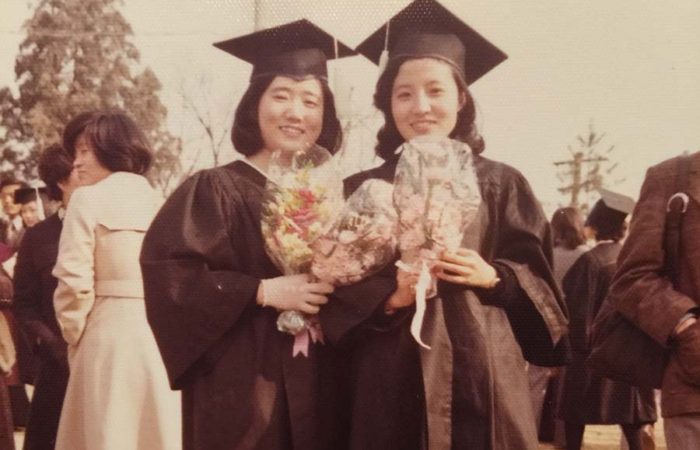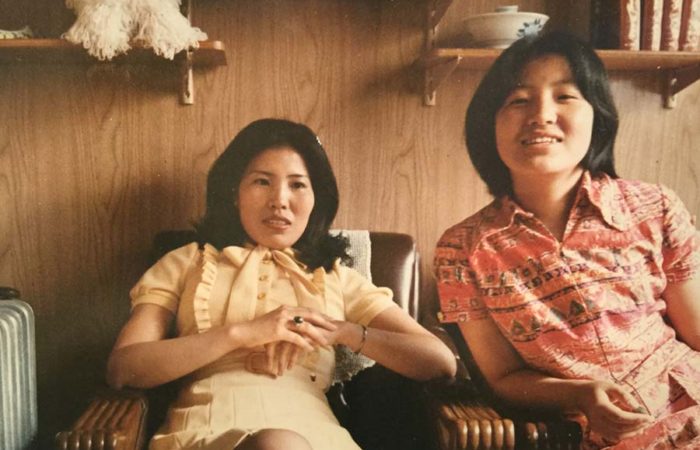EVERYTHING BELONGS TO US is a work of fiction inspired by stories Grace heard from her parents about their college years. Grace’s parents met as freshmen while her father was at Seoul National University and her mother was at Ewha Woman’s University. Her father’s memories of the political climate during these years sparked Grace’s initial ideas for the novel, but neither of her parents were student activists. Grace’s mother, like Namin, grew up in Miari and was the first student in her working class town to test into the prestigious Kyungki Middle School, where she met her lifelong best friend. Living in Seoul and New Jersey, they are still best friends to this day. Grace’s mother was put through college by her older sister, who worked for a company selling pianos. Grace’s aunt raised two children and is a talented florist in Leonia, New Jersey.
FOR BOOK CLUBS
Discussion Questions:
- The title, “Everything Belongs to Us,” is a play off a statement that the police officer says to Jisun after she is arrested. He says “Not everything belongs to you.” The characters in the book are college students living in a time of great change, and in many ways they are living with this manifesto in mind. Everything could potentially belong to them, but at a price. What is the price? Is it worth it? How is the title both accurate and ironic to their lives?
- The two women in the book are childhood friends, but their relationship has always been complicated and made tense by their class differences. How do poverty and wealth affect the choices each woman makes? How do poverty and wealth affect the emotional dynamics of their relationship?
- Related: how does poverty and wealth contribute to each character’s sense of shame and pride? Namin, for instance, feels ashamed of her poverty but this sometimes manifests as pride. On the other hand, Jisun is ashamed of her privilege because it separates her from the other activists—and Namin—whose community and approval she craves.
- Although this book is set forty years ago on the opposite side of the world from the U.S., how are the themes of social, political and economic justice relevant to our current U.S. events? How are they different?
- How is youth both a benefit and liability to the characters in the book? Their youthful energy and ambition put them in positions where they have much to gain during this pivotal time in the nation’s history. On the other hand, their youthful indiscretions and inexperience drive the decisions they make, and their outcomes. How do you think these major decisions might have changed if they had been 35 or 25 instead of 19? How might things have turned out differently?
- Korean culture is traditionally very communal (ie. focused more on the group rather than the individual). How do family roles, interventions, and dynamics affect individual outcomes for Jisun, Namin and Sunam? And thinking of larger groups beyond the family: how do the actions of powerful corporations (for example, Ahn) and authoritarian government (President Park Chung-hee) affect the individuals during this time period?









